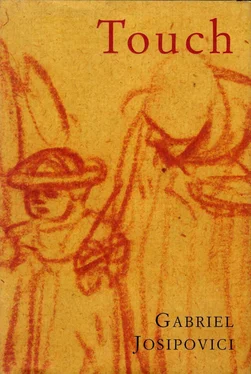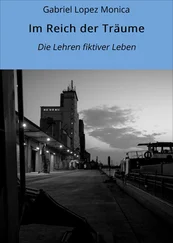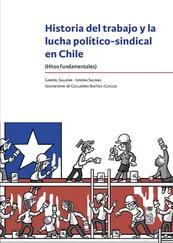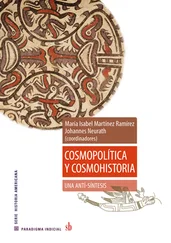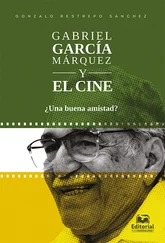Gabriel Josipovici - Touch
Здесь есть возможность читать онлайн «Gabriel Josipovici - Touch» весь текст электронной книги совершенно бесплатно (целиком полную версию без сокращений). В некоторых случаях можно слушать аудио, скачать через торрент в формате fb2 и присутствует краткое содержание. Год выпуска: 1996, ISBN: 1996, Издательство: Yale University Press, Жанр: Современная проза, на английском языке. Описание произведения, (предисловие) а так же отзывы посетителей доступны на портале библиотеки ЛибКат.
- Название:Touch
- Автор:
- Издательство:Yale University Press
- Жанр:
- Год:1996
- ISBN:0300066902
- Рейтинг книги:5 / 5. Голосов: 1
-
Избранное:Добавить в избранное
- Отзывы:
-
Ваша оценка:
- 100
- 1
- 2
- 3
- 4
- 5
Touch: краткое содержание, описание и аннотация
Предлагаем к чтению аннотацию, описание, краткое содержание или предисловие (зависит от того, что написал сам автор книги «Touch»). Если вы не нашли необходимую информацию о книге — напишите в комментариях, мы постараемся отыскать её.
Touch — читать онлайн бесплатно полную книгу (весь текст) целиком
Ниже представлен текст книги, разбитый по страницам. Система сохранения места последней прочитанной страницы, позволяет с удобством читать онлайн бесплатно книгу «Touch», без необходимости каждый раз заново искать на чём Вы остановились. Поставьте закладку, и сможете в любой момент перейти на страницу, на которой закончили чтение.
Интервал:
Закладка:
Gabriel Josipovici
Touch
For Margreta, who will know why.
Put your finger into every bottle, to feel whether it be full, which is the surest way, for feeling hath no fellow.
Jonathan Swift, Directions to ServantsAcknowledgements
Though this is a very personal book it grew in large part out of conversations and debates with friends. An animated discussion on the subject of touch with Stuart Hood was followed by a long letter from him, parts of which were so illuminating that I have quoted them in the Appendix. Along the way I showed versions of the book to many people, who all made helpful suggestions: Monika Beisner, Rosalind Belben, Brian Cummings, Paul Davies, Dan Gunn, Sue Loewenstein, John Mepham, Desa Philippi, Sacha Rabinovitch. Bernard Harrison and Margreta de Grazia read both an early and a late draft with a care far beyond the call of duty or even friendship, covering every page of typescript with helpful criticism and comment. The book would not be what it is without them, even though in the end I am afraid I often ignored their advice and went my own way. Robert Baldock and Candida Brazil, my editors at Yale, could not have been more helpful. To all, my grateful thanks.
Prologue
The desire to write an essay on touch has grown steadily on me in the last few years.
I do not know what will be in that essay or how I will go about writing it, but the thought of writing it will not leave me.
For some time I have been jotting down notes to myself on the topic of touch, collecting postcards and quotations that seem relevant, and trying out my ideas on my friends. But the gap between this preliminary work and the actual writing of the essay is unbridgeable. Once I have written down the sentence, ‘The desire to write an essay on touch has grown steadily on me in the last few years’, I have entered a new world, a world where what I had previously thought and read and jotted down is about as useful as those conjectural maps of an unexplored region are for the explorer: not entirely useless, but of little immediate practical help. How I advance from now on, and if I advance at all, is going to depend less on those thoughts and jottings than on the resources I can call on daily within myself and on the decisions I take as I go along.
It is important, in such circumstances, to feel one's way forward with care, but also never to stand still for too long.
These are of course merely metaphors. Why do they seem to correspond to my (as yet unclear but not exactly vague) aims?
It is, I think, because the notion of feeling one's way forward, of groping in the dark or semi-darkness, implies a testing of the way with the whole body. And although this method may be painfully slow, it is much less likely to lead me astray than if I relied on sight alone and had open country to cross and a bright sun to go by. In this way I will experience every inch of the way rather than suddenly finding that I have reached my goal with very little sense of the terrain I have passed through. If I can simply walk across the space that lies between me and my goal I may arrive there quickly, but then I will be left wondering whether I have really arrived or only dreamed or imagined it.
The ground I have to cover does not lie stretched out before me, but it does not lie inside me either. Where then does it lie? Or do I need another metaphor altogether? This is one of the things I will no doubt discover in the course of writing this essay. All I know at the moment is that my instinct tells me that I have to rely on touch rather than on sight, on groping my way forward rather than striding or running. But that, surely, is appropriate to the subject in hand.
In hand? That is surely the point. I do not have the subject in my hand. I do not hold it. But where then is it? And do I have to try and banish all such metaphors as misleading as I set out in search of it?
I don't think so, for then I would not be able to write at all. Perhaps all I need to do is note our language's propensity for such metaphors and see if that tells me something about the road I have to follow.
Enough. It is time to begin.
1 The Lesson of the Hand
There is a scene in Charlie Chaplin's City Lights which, when I first saw it, stirred me as I am rarely stirred, and has remained firmly etched in my mind in all the intervening years (though I realise, as I come to write about it here, that my memory of it contains many blanks and that my clear visual recollection is perhaps more a recollection of the effect of that scene than of its precise details — but let that be, I have no wish to see it again in order to check, for what interests me is to understand why that first experience was so powerful and why I have never forgotten it).
That mildly funny and heavily sentimental film deals with a subject to which drama and film have occasionally been drawn: blindness. It concerns the relations between a little tramp and a beautiful blind flower-girl. I do not recall anything about the plot, only its climactic scene. The little tramp has been kind to the girl, has even, I seem to remember, managed to procure money with which she can have an operation to restore her sight. The operation is successful, but she does not know who her benefactor is, for the tramp has kept his identity hidden, though managing to convey the impression that he is a very rich man. We now see the girl, her sight restored, working in a smart flower-shop and chatting to her fellow-employee. We see her through the plate-glass window of the shop, through the serried ranks of flowers. We see her, in fact, through the eyes of the little tramp, who is passing by, glances in, then stops in astonishment as his eyes light on her.
She, looking out into the street as she talks and laughs with her friend, gradually becomes aware of him. Through the shop window we see her glancing at him and then laughing, perhaps at his comic appearance, perhaps just at something the other girl has said. However, as he stands on the pavement looking in (and in my memory at least the camera stays resolutely with him throughout), the two girls gradually become aware that something is amiss. Even a hungry and exhausted tramp would not go on staring in as this man is doing. What does he want? Why doesn't he move on? The girl and her friend talk seriously for a moment, then she takes a flower from a bucket, opens the door of the shop and steps outside. She holds the flower out to him: Here. For me? Yes, take it. No, I couldn't, really. But you must. No no. Please take it. (It is important for all this that it is a silent film — the last silent film, I seem to recall, that Chaplin made.) Finally he accepts the flower. She turns and steps back inside the shop.
For the audience the scene has become unbearable. The girl is there, so close to her benefactor (who could have left the pain and sorrow of a tramp's life behind if he had not selflessly given the money that fell into his hands to help her recover her sight), and yet she does not and cannot know him. (Even were he capable of it, it would be no use his telling her of his role in her life, since she would not believe him.) Will that be how it remains? Will that be it ?
In such circumstances, as I sit in the dark watching the film unfold, my own response is silently to beg the scriptwriter and director to have pity on me, not to harden their hearts but to allow the longed-for recognition to take place. This, I realise, is an odd response. I could understand an unsophisticated viewer praying to whatever god he believed in to make the recognition happen; and I could understand a sophisticated viewer refusing to be taken in by what is, after all, only a popular film, and so shrugging the whole thing off as a pathetic attempt to pull the audience's heart-strings, a crude ploy from which he will resolutely withhold his assent. What I cannot understand is my simultaneous awareness of the fact that this is only a film, and a rather meretricious one at that, and my desperate wish that whatever human being is manipulating the strings should have pity on my suffering and not allow the tramp and the flower-girl to part without her recognising him.
Читать дальшеИнтервал:
Закладка:
Похожие книги на «Touch»
Представляем Вашему вниманию похожие книги на «Touch» списком для выбора. Мы отобрали схожую по названию и смыслу литературу в надежде предоставить читателям больше вариантов отыскать новые, интересные, ещё непрочитанные произведения.
Обсуждение, отзывы о книге «Touch» и просто собственные мнения читателей. Оставьте ваши комментарии, напишите, что Вы думаете о произведении, его смысле или главных героях. Укажите что конкретно понравилось, а что нет, и почему Вы так считаете.
